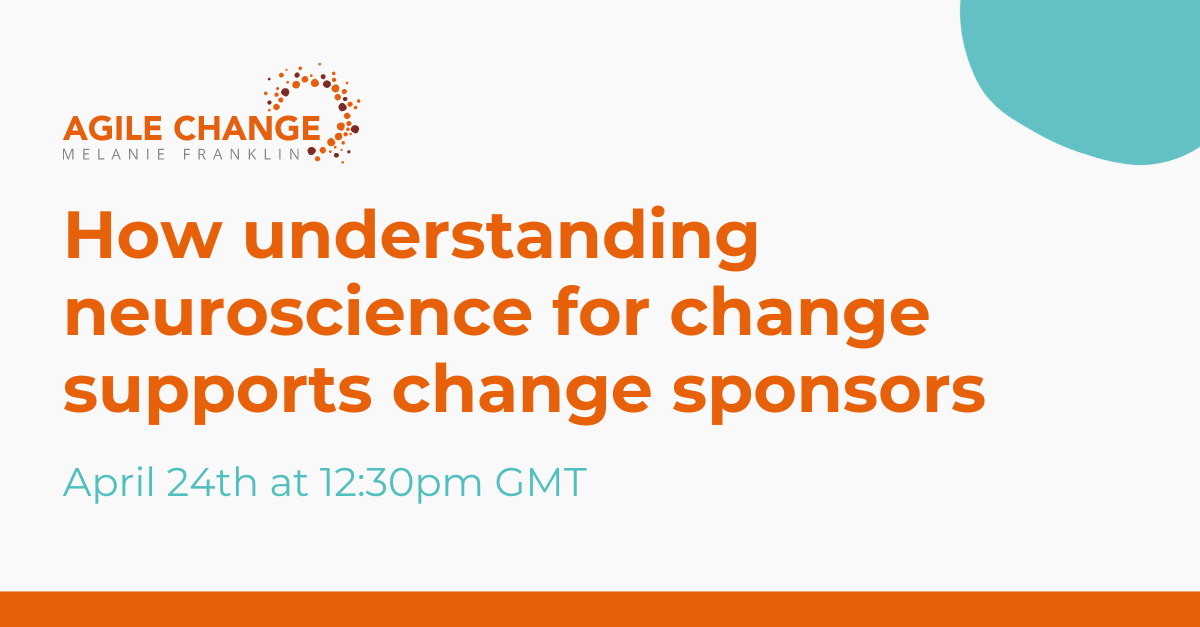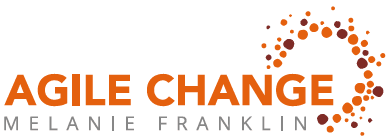How understanding neuroscience for change supports change sponsors


I read a great leadership article this week about doing the right thing for your role, not necessarily the right/easy thing for you. It was all about how looking at a challenge from the perspective of your role gives you objectivity, which helps you to do difficult things. The logic is that if we look at a challenge purely from the perspective of whether we want to do it, we give in because is hard. The “role, not person” technique showed how this encouraged leaders to have difficult conversations.
It gave me food for thought, and I decided to use it on a challenge I have being facing in Lockdown 2.0, where I am not as focused as I have been.
I was starting lots of pieces of work but not finishing them and I was allowing my concentration to be broken by emails or household priorities even though I had been working from home for months. This was creating feelings of hopelessness as I am working hard but not achieving as much as I could.
I had the choice of giving up, taking some time off and hoping I would come back motivated (difficult if you cannot leave your house) or stimulate my motivation by looking at my workload differently.
I chose the second option purely for pragmatic reasons. With the possibility of a vaccine on the horizon I wanted to save up my holiday time to spend with my family who will visit as soon as the restrictions are lifted.
The technique is to de-personalise your work by asking “what would someone in my role do?”
This takes away the emotions and the preferences we have as an individual and enables us to look at the situation from the perspectives of delivering against the responsibilities of a specific role or the values of an organisation.
I used my previous role of programme manager this aligns to my work, which is a giant programme, with each workstream satisfying a different client. I need to deliver competing, conflicting pieces of work, all interdependent on one another and that taken together deliver business value to me and my clients.
What was interesting is that as soon as I viewed my job through this lens I remembered the key skills in programme management are the ability to prioritise initiatives and to create achievements that reassure stakeholders that concrete progress us being made.
Looking through this lens I timeboxed my day, turning off email in each 1 hour sprint and celebrating getting things finished at the end of the sprint by giving time to something in the house that had previously distracted me.
I used these 1 hour concentrated efforts to work through a prioritised backlog of initiatives, with a clear plan to finish on Friday afternoon so that my work didn’t spread itself all over my weekend.
I have been amazed how the technique has brought a new focus to my day. If I am starting to lose focus, I think about how that would look as a professional programme manager. I find myself thinking that I wouldn’t give up on something if I was in front of a client, so I don’t give up just because I am the client!
I know this is a “trick of the brain” but it works. Try it for yourself and let me know how you get on. If you want more techniques, join me on my next Agile Change Agent course as these example of positive psychology are an important element of the training.


The role of sponsor is a difficult balancing act, covering the scope, participation and communication of change. In this webinar, Melanie will provide practical techniques and guidance for encouraging others to change, examining the power of role-modelling by senior leaders and how sponsors can build the wider capability for change in their organisations.
Share this event:
